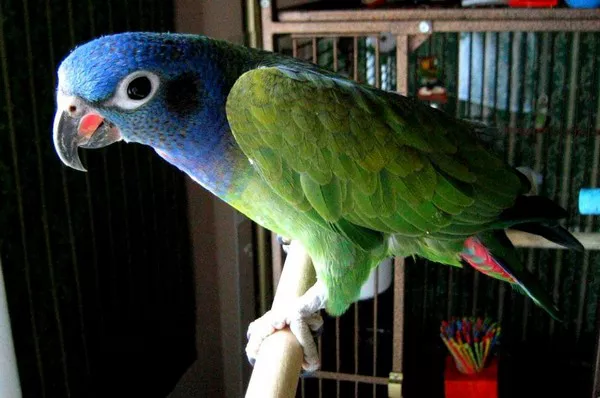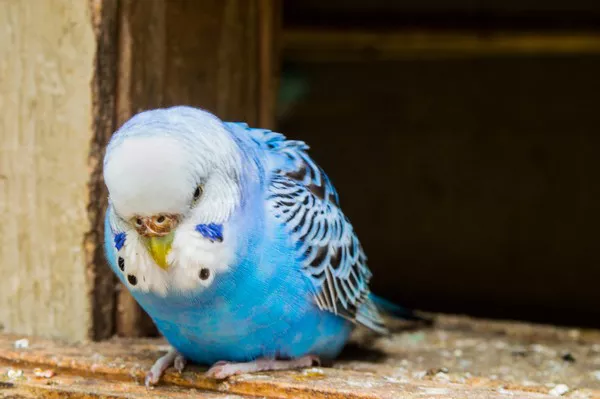Ah, the Miniature Schnauzer! Those whiskered wonders that strut around with all the confidence of a lion but the stature of a small dog. With their charming personalities, bushy eyebrows, and a penchant for barking at leaves, these pint-sized pups have captured the hearts of dog lovers worldwide. But what about their weight? In this article, we’ll explore the average weight for a Miniature Schnauzer, why it matters, and the quirks that make them so uniquely lovable. So, grab your favorite snack, and let’s dive into the whimsical world of Miniature Schnauzers!
A Brief History of Miniature Schnauzers
Before we tackle the weighty issue of how much these furry friends should weigh, let’s take a quick romp through the history of the Miniature Schnauzer. Originating in Germany in the late 19th century, the Miniature Schnauzer was bred to be a small farm dog, helping to catch rats and other vermin. Imagine a tiny canine with a giant personality, scurrying through fields, chasing after anything that dared to cross its path.
The breed is a smaller version of the Standard Schnauzer. The Miniature Schnauzer was developed by crossing Standard Schnauzers with smaller breeds, likely the Affenpinscher and the Poodle. The result? A feisty little dog with a distinctive beard and eyebrows that look like they just walked off the set of a blockbuster movie.
What Is the Average Weight for a Miniature Schnauzer?
Now, let’s get to the heart of the matter. The average weight for a Miniature Schnauzer typically ranges from 11 to 20 pounds (5 to 9 kg). However, there are several factors that can influence this range, including genetics, diet, and lifestyle.
Puppyhood vs. Adulthood: The Growing Years
If you’re a proud Miniature Schnauzer parent, you may find yourself obsessively monitoring your pup’s weight. After all, you want to make sure your furry friend grows up healthy and strong.
Puppies: When they’re little, Miniature Schnauzers are like fluffy little marshmallows. At about 8 weeks old, a Miniature Schnauzer puppy typically weighs around 2 to 5 pounds (0.9 to 2.3 kg). They grow quickly, and by the time they reach 6 months, they might weigh between 8 to 15 pounds (3.6 to 6.8 kg).
Adulthood: By the time they reach 1 year old, most Miniature Schnauzers will have reached their full weight. The average adult Miniature Schnauzer will weigh between 11 to 20 pounds (5 to 9 kg), with females generally being on the lighter end of the scale and males on the heavier side.
Weight Classes: Understanding the Range
Standard Miniature Schnauzer: The breed standard specifies that Miniature Schnauzers should weigh between 11 and 20 pounds (5 to 9 kg). This range is based on their overall size and build, ensuring they remain healthy and agile.
Pet Miniature Schnauzer: Some pet owners may allow their Miniature Schnauzers to weigh a bit more than the standard, especially if they enjoy a few too many treats. While it’s common for them to tip the scales at 21 pounds (9.5 kg) or even more, it’s essential to monitor their weight to prevent obesity-related health issues.
Show Miniature Schnauzer: For those aiming to showcase their furry friend in dog shows, adherence to the breed standard is critical. These Schnauzers typically maintain a weight within the specified range, ensuring they meet all the judging criteria.
Factors Influencing Weight
While the average weight is a helpful guideline, several factors can influence where your Miniature Schnauzer falls within the weight range. Let’s dig into these factors with the enthusiasm of a dog chasing its own tail.
Genetics: The Family Tree
Just like humans, dogs inherit traits from their parents. The genetics of your Miniature Schnauzer plays a crucial role in determining its size and weight. If both parents are on the heavier side, chances are their puppies will be, too. Conversely, if they’re petite, your Miniature Schnauzer may take after them.
Diet: You Are What You Eat
Imagine if you could eat as many cookies as you wanted without any consequences. Sounds like a dream, right? Unfortunately, dogs can’t indulge in all those treats without facing the music. A balanced diet is essential for maintaining a healthy weight.
Miniature Schnauzers thrive on high-quality dog food that meets their nutritional needs. Portion control is vital—overfeeding can lead to obesity, which poses numerous health risks, including diabetes and joint problems. Aim for the recommended feeding guidelines based on your dog’s age, weight, and activity level. And remember, those adorable puppy-dog eyes can be deceiving when it comes to begging for just one more treat!
Activity Level: The Energetic Sprinters
Miniature Schnauzers are energetic little creatures. They love to run, play, and explore their surroundings. An active dog will naturally maintain a healthier weight compared to a couch potato pooch. Daily walks, playtime in the yard, and even some agility training can help your Miniature Schnauzer burn off those calories.
Lack of exercise can lead to weight gain and boredom, which may result in destructive behavior. So, get out there and play fetch or teach your Schnauzer some new tricks! They’ll appreciate it, and so will your furniture.
Age: The Wise Old Tails
As your Miniature Schnauzer ages, its metabolism may slow down. This means that their caloric needs may decrease over time. Senior Schnauzers may need a different diet and exercise routine to maintain a healthy weight. Monitoring their weight becomes even more critical as they age, so keep an eye on their body condition and adjust their diet and activity levels accordingly.
Health Conditions: The Not-So-Fun Stuff
Like humans, dogs can develop health conditions that affect their weight. Certain diseases can cause weight gain or loss, making it essential to consult your veterinarian if you notice significant changes in your Miniature Schnauzer’s weight. Some common health issues that may affect weight include:
Hypothyroidism: This condition occurs when the thyroid gland doesn’t produce enough hormones, leading to weight gain, lethargy, and other health issues.
Cushing’s Disease: Also known as hyperadrenocorticism, this condition results from overproduction of cortisol and can lead to increased appetite and weight gain.
Diabetes: Miniature Schnauzers are prone to diabetes, which can cause weight loss despite an increased appetite.
If you suspect that your Schnauzer is facing health issues, it’s best to seek advice from your veterinarian.
The Importance of Maintaining a Healthy Weight
You might be wondering, “Why should I care about my Miniature Schnauzer’s weight?” Well, maintaining a healthy weight is essential for several reasons:
Overall Health
A healthy weight contributes to your dog’s overall well-being. Dogs that maintain a healthy weight are less likely to develop various health issues, including diabetes, heart disease, and joint problems. Preventive care is always better than reactive care!
Mobility
Extra weight can put a strain on your dog’s joints, leading to arthritis and mobility issues. Miniature Schnauzers are known for their playful nature, and keeping them light on their paws ensures they can run and jump without discomfort.
Longevity
Just like us, dogs benefit from maintaining a healthy weight. Studies show that dogs at a healthy weight tend to live longer, happier lives. Who doesn’t want more years filled with tail wags and puppy cuddles?
Quality of Life
An overweight dog may experience a decreased quality of life. Excess weight can lead to lethargy and reduced playfulness, making it challenging for them to enjoy life to the fullest. By keeping your Miniature Schnauzer at a healthy weight, you’re ensuring they can enjoy all the fun life has to offer.
See Also: Can You Train a Miniature Schnauzer Not to Bark?
Tips for Maintaining a Healthy Weight
Now that you know why it’s essential to maintain your Miniature Schnauzer’s weight, let’s talk about how to do it effectively. Here are some tips that are as simple as teaching your dog to sit (which, by the way, they might just master before you finish this article).
Regular Vet Checkups
Schedule regular vet checkups to monitor your Miniature Schnauzer’s weight. Your veterinarian can provide guidance on proper nutrition, exercise, and any necessary lifestyle adjustments.
Balanced Diet
Choose a high-quality dog food that meets your Miniature Schnauzer’s nutritional needs. Pay attention to portion sizes and avoid free-feeding, where food is available at all times. Stick to a feeding schedule to help regulate their intake.
Limit Treats
While it’s hard to resist those puppy eyes, be mindful of how many treats you’re giving. Treats should make up no more than 10% of your dog’s daily caloric intake. Opt for healthy options like carrot sticks or green beans instead of high-calorie snacks.
Exercise Regularly
Aim for at least 30 minutes of exercise daily. This can include walks, playtime in the yard, or fun games like fetch. Engaging in activities together strengthens the bond between you and your Miniature Schnauzer.
Monitor Weight
Keep track of your Miniature Schnauzer’s weight regularly. A simple kitchen scale can help you monitor changes. If you notice significant fluctuations, consult your veterinarian for guidance.
Train Their Mind
Keep your Miniature Schnauzer’s brain active with training sessions. Teaching new tricks or playing interactive games can keep them mentally stimulated, reducing boredom and the likelihood of overeating.
Conclusion
In conclusion, the average weight for a Miniature Schnauzer typically falls between 11 to 20 pounds (5 to 9 kg), but various factors can influence this range. Understanding the importance of maintaining a healthy weight will ensure your furry friend lives a long, happy, and active life.
As a pet owner, being proactive about your Miniature Schnauzer’s weight, diet, and exercise can make a significant difference in their overall health and happiness. So, whether you’re out on walks or snuggled up on the couch, cherish those moments with your Miniature Schnauzer. With their charming personalities and zest for life, they’ll always find a way to keep you entertained, whether it’s through their goofy antics or their unyielding love.
Now, go on—give your Miniature Schnauzer an extra belly rub, and promise them an adventure. After all, they’re more than just adorable little furballs; they’re your companions on the journey of life, and every ounce of love you share will be returned tenfold. Happy tail-wagging!
Related Topics:

























